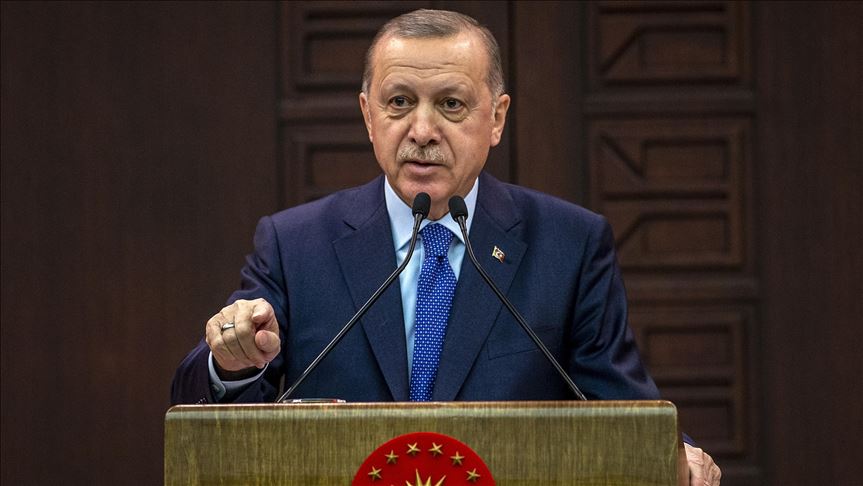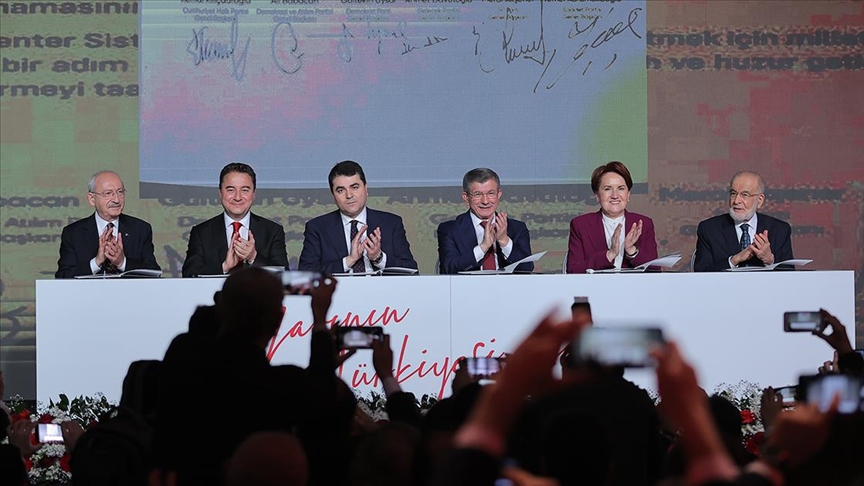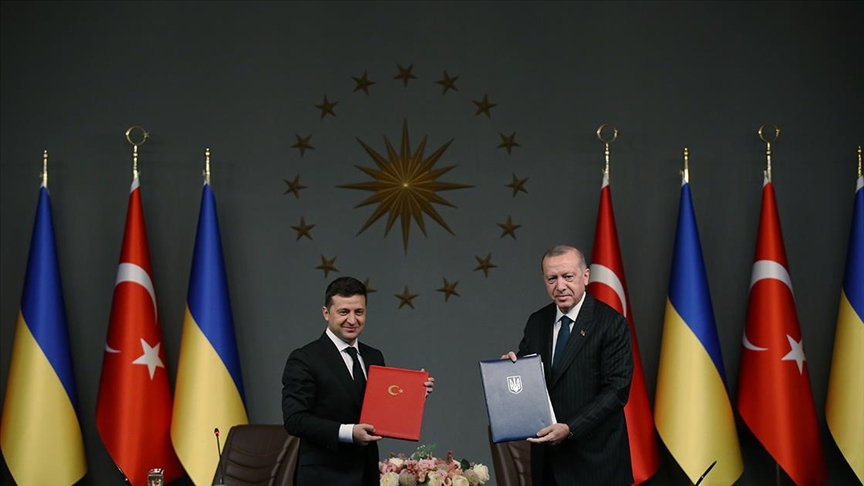In less than ten months, national parliamentary and presidential elections will be held in Türkiye. They are important for several reasons: the year of 2023 will be a kind of a "sum up" of the country's development.
Next year, Türkiye will celebrate the 100th anniversary of the Republic’s founding, the 20th anniversary of the ruling Justice and Development Party (AKP), and the 60th anniversary of the signing of the Association Agreement with the EU. The aggravation of contradictions with Western partners and the war in Ukraine, cross-border operations in Syria and Iraq, the escalation with Greece and the resumption of the dialogue with Israel and Saudi Arabia, attempts to normalize relations with Armenia, and the new Karabakh war, the devaluation of the lira and the most serious economic crisis in the country in recent years - all this directly affects the mood of the Turkish voter and the results of the elections.
Specially for UA.SOUTH, in the series of publications "Türkiye-2023: what to expect for Ukraine?", we will try to understand the internal political trends, public sentiments, and most importantly - the sentiments of the leaders of the Turkish election races towards Ukraine, Crimea, Russia and cooperation with Western partners.
Who is fighting for victory?
In less than a year before the elections, public opinion polls show a real chance of victory for the opposition for the first time in two decades, although the advantage of any political force is still not conclusive. Moreover, the ratings of the opposition bloc fluctuate to a large extent depending on who the parties choose as the only candidate in the presidential elections.
Different polls give different chances of victory for the current president and his closest competitors - the leader of the opposition Republican People's Party, the experienced but not too charismatic Kemal Kilichdaroglu, who has already lost the previous elections to Erdogan several times and now has the least chance of beating him among all the opposition candidates; his fellow party members - the young but ambitious mayor of Istanbul, Ekrem Imamoglu, and his colleague from Ankara, Mansur Yavash (who is popular among the people, but shows no interest in the presidency himself), as well as the only woman on the list of candidates - Meral Akshener, the former Minister of the Internal Affairs and the associate of the "main nationalist" Devlet Bakhcheli, and also the head of her own right-centrist "Good" party. It is her ratings that now have the highest growth rates, including due to the protest and new electorate - more than a million of young people will vote for the first time.

photo by Anadolu Agency
In any case, it seems that the results of the elections will be decided in the second round. And in this case, Meral Akshener has every chance to become, if not the first female president of Türkiye, then at least to claim the position of first vice president or prime minister in case of bringing this position back.
The transition to the presidential form of government and the consolidation of power in the country after the 2017 referendum brought Recep Tayyip Erdogan not only almost unlimited power in the process of making internal and foreign policy decisions, but also full responsibility for each of them. Public opinion polls unanimously name the growing dissatisfaction of citizens with the ineffective policy of the government in solving internal problems (inflation, refugees, currency crisis, etc.) as the main reasons for the steady decline in ratings of the government and also emphasize the desire of the vast majority of the population to return to the parliamentary system of government.
The abolition of the presidential republic and economic reforms is exactly what promises to do if the opposition bloc of six parties with different political platforms wins, but it is a mutual desire to end the twenty-year rule of the AKP (which is currently getting about 28-31% of the votes) and their junior partners in the coalition - the far-right Party of the Nationalist Movement of Devlet Bakhcheli (polls give 5-7% in the next elections).
The opposition "bloc of six", as it is now unofficially called in the Turkish media, includes the Kemalists from the Republican People's Party of Kemal Kilichdaroglu (SNR, 25-27% of votes), secular nationalists of the Good Party of Meral Akshener (İyi Parti, 12-14 %) and several other less influential political forces that do not overcome the 7% barrier to the parliament outside the bloc: the liberal-conservative Democratic Party (Demokrat Parti), the Islamist Party of Happiness (Saadet Partisi), as well as Erdogan's former associates - Party of the Future (Gelecek Partisi) of the ex-Prime Minister and Minister of Foreign Affairs, Ahmet Davutoglu, and Party of Democracy and Progress (DEVA) of the ex-Vice Prime Minister and Minister of Economy, Ali Babacan. None of them is able to overcome the ruling AKP in a "duel", but if a single block is formed, the chances of victory increase many times.
The main question now is whether the platform of various parties, created as a platform for broad dialogue and coordination of opposition actions with the aim of changing power, will be able to develop into a full-fledged pre-election bloc. The difficulty of the opposition coalition is already evidenced by that fact that the meetings of party leaders were decided to be held once a month at the headquarters of each of the six parties, in alphabetical order. At the last of the first "round" of round tables held last week at the invitation of the Party of Happiness, it was expected to announce the official name of the bloc and determine the only candidate for the presidential elections. However, the parties limited themselves to a statement of their intention to go to the elections with a united front and to meet further. Ahead is not only the definition of "the first among equals", but also the distribution of portfolios in the future government and the creating of a joint political program for Islamists and supporters of the secular path of the country's development, which does not promise easy compromises.

photo by Anadolu Agency
In addition, the question in which deck the "golden card" of the pro-Kurdish People's Democracy Party (HDP) would fall, remains an intrigue. It already has 56 deputies in the Turkish parliament and, according to sociological forecasts, has a chance of getting from 9 to 12% in the next elections. So far, neither HDP leader Selahattin Demirtash, imprisoned on charges for cooperation with Kurdish terrorists, nor the party's current leadership have joined the "big six", waiting for the final formation of its election program and interesting proposals for themselves. However, it is obvious that under the current conditions, the votes of Kurdish voters are unlikely to reach the ruling coalition.
While the results of the elections depend solely on the will of the Turkish people and the transparency of the electoral process, which should take place in June 2023, it is important for Ukraine to understand already who with we will have to work for the next five years and what to expect from each of the political forces in case they come to power.
In the articles to follow, we will analyze in detail how Türkiye's foreign policy may change under the leadership of each of the main parties. But first, it is worth looking at the general trends - in the political spectrum of the country and in public sentiments.
The first news is good
None of the political forces, with the exception of the marginal "Turkish friends of Dugin" from Perinchek's Vatan Dogu party (which traditionally receives less than 1% of votes in elections and is not even represented in the polls), does not recognize the illegal annexation of Crimea by Russia. All the key political forces in Türkiye in different forms and at different times express support for the territorial integrity and sovereignty of Ukraine.
Imperatives of national security, support of related Turkic communities of Ukraine - Crimean Tatars, Gagauz, and Meskhetian Turks, or the desire to strengthen the regional vector of foreign policy - each of the political forces has its own agenda and priorities. At the same time, the representatives of any of the parties have no doubt that an integral and independent Ukraine is a guarantee of regional stability.
Another question is to what extent this support for sovereign Ukraine can turn into real practical actions to fight Russian aggression. And here everything is much more complicated. After all, it is not only a question of the level of understanding of the Russian threat by the country's military and political establishment but also of public sentiments. And they are ambiguous for Ukraine.

photo by Anadolu Agency
Whose side the Turkish people support?
Ukraine is lucky to be almost the only country in the region that does not have not only unresolved political problems with Türkiye at the present stage but also the burden of the historical past. The common Black Sea, and hospitable and beautiful people are usually the main associations that determine the perception of Ukraine by ordinary Turks. At the same time, after February 24, you will not see blue-yellow flags in support of Ukraine on the balconies of Turkish houses, fans of one of the largest Turkish clubs chant "vladimir putin" at the match with Dynamo-Kyiv, and it is unlikely that you will be able to drive even once in Turkish taxis without hearing how Ukraine became a victim of Western manipulations and a pawn on the chessboard of the great geopolitical game between Russia and NATO.
Such sentiments in Turkish society are confirmed by sociological data. According to a MetroPOLL survey conducted immediately after the start of the large-scale Russian invasion of Ukraine, almost 84% of respondents called it "unfair and unacceptable" and "only" 12.3% supported the aggressor. At the same time, only 19% of respondents clearly supported Ukraine, while 73% called for neutrality in the conflict. In addition, even among supporters of Ukraine, the vast majority blamed the USA and NATO countries (48.3%) for the start of the war in Ukraine, much less Russia (33.7%).
The statistics cited by BBC Ukraine in a recent article on the peculiarities of "Ottoman diplomacy" are also interesting: according to it, at the beginning of the year, 37.5% of Turks preferred cooperation with the EU and the USA, while 39.4% were in favor of developing relations with Russia and China. Among representatives of the leading AKP, this indicator is even bigger: 49.4% preferred greater cooperation with Russia and China, and only 27.1% - with the EU and the USA. The opposition is more sympathetic to the West - among the electorate of the main opposition SNR, 45.8% supported cooperation with the EU and the USA, 34.4% - with China and Russia; in the ranks of the Good Party, these indicators were 45.2% for the USA and the EU, 41% for the Russian Federation and the People's Republic of China, respectively.
At the same time, a survey by Kadir Has University for 2021 showed that 56% of Turks, independently of political preferences, consider the USA (a strategic partner and NATO ally) the main threat to Türkiye, 41% - Russia, and 37% - China. Since the beginning of the war, the situation has not changed. In March 2022, only 35% of Turkish citizens felt concerned about the Russian threat.
It is obvious that with such sentiments among ordinary Turks, it is hardly worth expecting a radical change of policy towards Ukraine and Russia under any political arrangement. Anti-Western sentiment unites almost all representatives of the Turkish political spectrum, both on the right and on the left. And this is one of the key problems that not only European and transatlantic partners, but also Ukraine will have to deal with under any government.
However, the success of this struggle will largely depend on the foreign policy priorities of the new (old?) leadership of the country, and on its information policy. Read about this in the following materials of the series "Türkiye-2023: what to expect for Ukraine?" for UA.SOUTH.